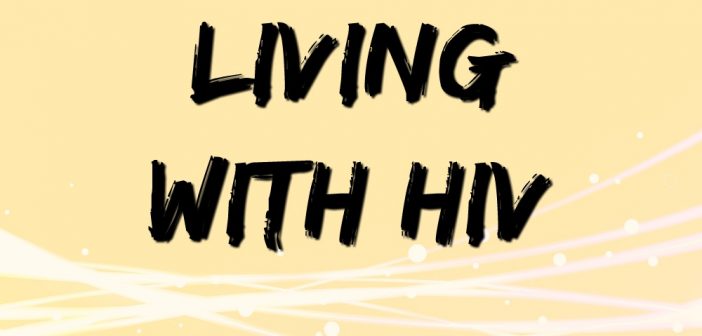By Lori Bizzoco, guest post
In 1990, after Michelle Lopez left a domestic violence situation, she and her infant daughter were homeless and both diagnosed with HIV. “If I had not found community, I truly believe I would have been dead,” she says. Michelle, who is now a 51-year-old mother and grandmother, reminds people that “HIV is a diagnosis, it’s not a definition of who you are. You’re not alone, you’re never going to be alone.”
While HIV can now be a long-term, manageable chronic disease for many, this can present a unique set of challenges for those living with the virus. Many people living with HIV describe feelings of loneliness and isolation, which is why it is so important to know how to find a community of support.
Michelle and other long-term survivors of the HIV epidemic are sharing their stories through a new video series called Never Alone, in hopes of inspiring those who might be struggling now. Never Alone aims to help people who are newly diagnosed or living with HIV feel less isolated and better connected with their community.
From Isolation to Activism
When Ed Shaw was first diagnosed with HIV in 1988 at age 47, he thought his life was over. When the first cases of AIDS were reported in the U.S. in the early 1980s, the number of people being diagnosed with and dying from AIDS was increasing rapidly during the decade.
After five isolating years filled with denial, stigma, and discrimination, Ed sought care for his HIV/AIDS. “Once I shared my diagnosis with my family, I was able to live better, freer, there was no more denial. And then I began to go out more because I had isolated myself for so long,” he says. “I started to become a community activist not only for myself but for others around me.”
Empowering Yourself & Reaching Others
After overcoming significant struggles in their lives, Michelle and Ed each found that the more they learned about HIV, the more they wanted to reach out and help educate others.
When Michelle was diagnosed, she says she thought that HIV was just a gay, white male disease and that women had nothing to worry about. Her community helped educate her and taught her to empower herself.
“I wanted to give back,” she says. “I would walk into beauty parlors, laundromats, wherever people were gathered, and just started sharing my story. And I told them where they can go and get an HIV test for free. Through this, I’m proud to have referred more than 200 people to a community health agency, and they were able to get help.”
Once Ed was able to finally accept his diagnosis, he began to educate himself more about HIV and AIDS. And that helped lessen the fear he’d felt and motivated him to begin taking medication.
“As long-term survivors, we need to give this information back to the community, so that they won’t experience what we went through,” he says. “Once you have been diagnosed with HIV or AIDS, I think it’s important to be open about your status, engage the community, and engage like-minded individuals that also have been diagnosed.”
Working with Your Healthcare Team
According to the Centers for Disease Control and Prevention (CDC), people aged 50 and over account for an estimated 45 percent of Americans who have been diagnosed with HIV. At the end of 2014, an estimated 428,724 people aged 50 and over were living with diagnosed HIV in the United States.
But aging with HIV can present some unique challenges. People with HIV age five to fourteen years faster than people without HIV, which may translate into the earlier onset of some chronic conditions compared with those who are HIV negative. Additionally, age, HIV, and HIV treatment raise the risk of cardiovascular, kidney, and liver disease, as well as bone loss and certain cancers.
“I now know so much more, not just about HIV, but about taking care of my health overall,” says Michelle. “Preventive care in my community is unheard of, but it is so important to staying healthy. I’ve learned how to work closely with my healthcare provider to manage my health.”
Ed urges everyone living with HIV to visit a healthcare provider. “It’s important to empower yourself, to know who you are, and what you’re capable of doing. Go the extra mile,” he says. “Don’t be afraid to ask questions.”
Remember, You Are Never Alone
“I would tell someone newly diagnosed with HIV to find your voice and get with a community,” says Michelle. “It then leads to your own self-empowerment.”
As Ed likes to remind everyone, “HIV is something you shouldn’t have to go through alone. There’s always someone, somewhere that you can talk to. And it’s really important that you understand that. You’re never alone.”
Learn More
HIV: The Long View Coalition is a group that aims to reignite the conversation around aging, long-term health, and HIV in collaboration with Gilead Sciences. Established in 2016, the Coalition is comprised of a diverse group of partner organizations that support some of the communities most heavily impacted by the HIV/AIDS epidemic today. Organizations include the American Academy of HIV Medicine, ACRIA, GMHC, HealthyWomen, National Black Leadership Commission on AIDS and the National Council on Aging. In its first year, the Coalition created and launched an evidence-based report and calls-to-action that envision the long-term future of HIV treatment, prevention and care, in the greater context of how the overall healthcare landscape evolves over the next twenty years.
To check out the Never Alone video series, visit the HIV: The Long View website.




